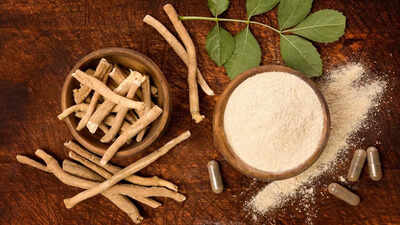ARTICLE AD BOX

Supplements like ashwagandha, melatonin, creatine, and psyllium husk are becoming increasingly popular as people look for natural ways to boost energy, improve sleep, reduce stress, and support digestion.
However, what many people don’t realise is that timing matters as much as consistency when it comes to getting the most out of your supplements. Dr Saurabh Sethi, a board-certified gastroenterologist trained at AIIMS, Harvard, and Stanford, recently shared practical insights on Instagram about when to take these commonly used supplements so that they work effectively instead of going to waste.
The best time to take supplements: Why timing matters for health and results
Supplements deliver nutrients, plant compounds, or hormones that influence body systems such as stress response, sleep, or digestion.
But the body’s natural rhythm from cortisol fluctuations to digestive activity, changes throughout the day. For example, taking a calming herb when cortisol is high in the morning may not bring the same benefits as taking it in the evening when the body is winding down. Similarly, some compounds like creatine rely more on consistent levels in the body, while others, like melatonin, must be timed precisely for maximum effect.
Dr Sethi emphasises that understanding the science of timing helps people get better results, avoid side effects, and stop wasting money on supplements used incorrectly.
Ashwagandha, Melatonin, Creatine and Psyllium Husk: Best times explained
Ashwagandha
Ashwagandha, a well-known Ayurvedic herb, is valued for reducing stress and supporting overall wellness. Dr Sethi recommends taking it in the evening, as it helps lower cortisol levels, calm the nervous system, and prepare the body for rest. This timing maximises its adaptogenic effects, especially for those dealing with stress-related fatigue or anxiety.
Melatonin
For those who struggle to fall asleep, melatonin can be a useful aid. However, taking it at the wrong time may disrupt your natural circadian rhythm. According to a study published in NIH, the ideal time is 30 to 60 minutes before bedtime, allowing the hormone to signal the brain that it’s time to sleep. This makes it easier to initiate sleep without grogginess the next day.
Creatine
Unlike herbs or hormones, creatine works by gradually saturating muscle stores to improve energy and recovery during workouts.
This means consistency matters more than timing. Dr Sethi explains that creatine can be taken any time of the day, post-workout or even in the morning, as long as it’s taken daily. Regular use ensures the body maintains the required levels for strength and endurance.
Psyllium Husk
Known for its digestive benefits, psyllium husk should be taken in the morning before breakfast with plenty of water. This helps regulate bowel movements, prevents constipation, and promotes satiety, making it easier to manage appetite throughout the day.
Taking it early also reduces the risk of interference with other medications or supplements.The effectiveness of supplements is not only about what you take but also when you take them. Ashwagandha works best in the evening to lower stress, melatonin supports sleep when timed before bed, creatine depends on daily consistency, and psyllium husk promotes digestion when taken in the morning. As Dr Sethi highlights, simple changes in timing can significantly improve absorption and results, helping people avoid wasting their supplements and money.That said, supplements should be used responsibly. Not everyone needs them, and their effectiveness can vary based on lifestyle, diet, and health conditions. Consulting a healthcare professional before starting any supplement is essential, especially for people with chronic illnesses or those taking medications. When used correctly, supplements can complement a balanced lifestyle and support long-term health goals.Disclaimer: This article is for general informational purposes only and is not a substitute for professional medical advice, diagnosis, or treatment. Always seek the guidance of a qualified healthcare provider regarding any medical condition or lifestyle change.Also Read: Everyday foods rich in resistant starch reduce fatty liver by 50% and support gut health: Study



.png)
.png)
.png)
















 7 hours ago
3
7 hours ago
3








 English (US) ·
English (US) ·